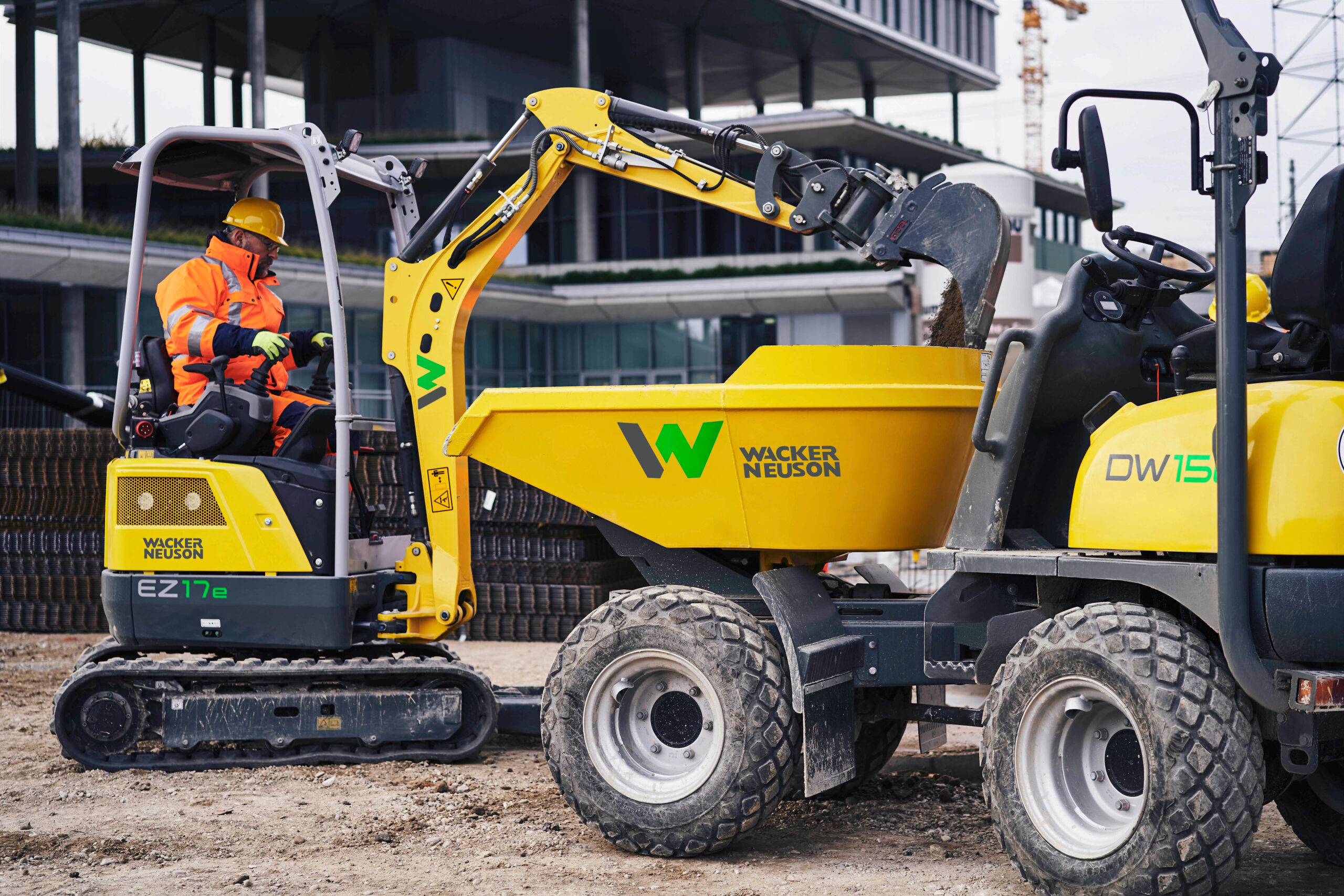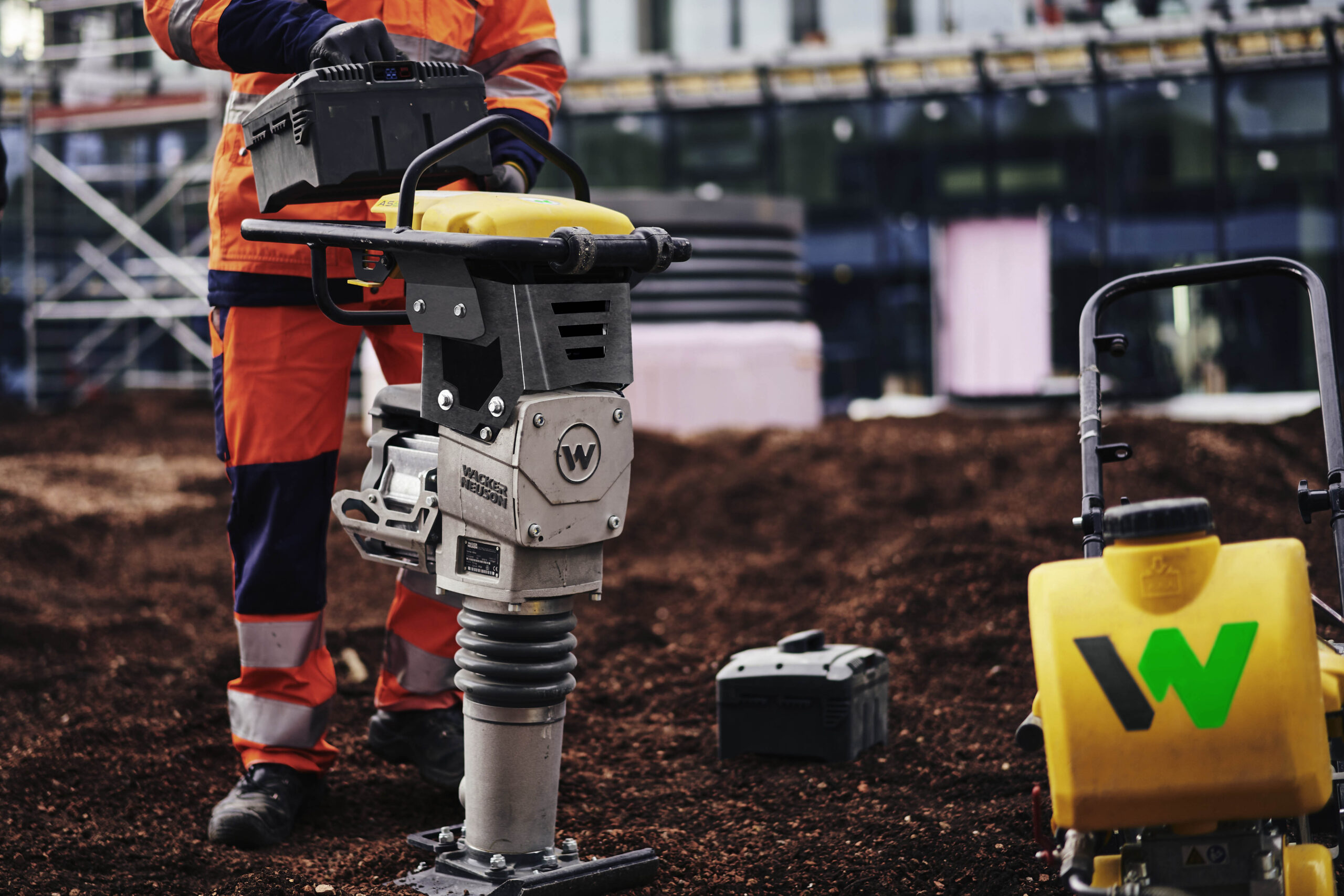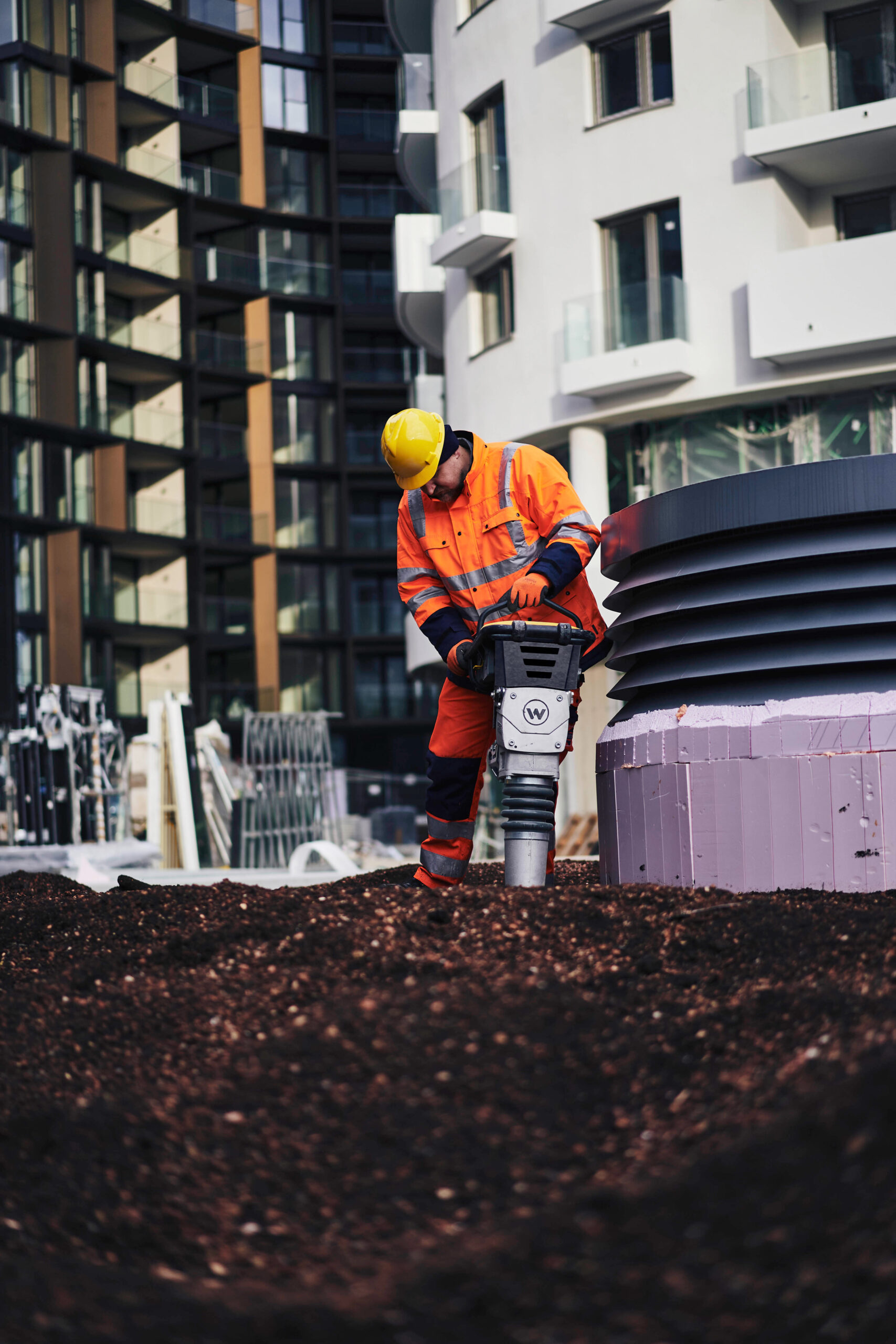As part of a private construction project in which a building complex of high-rise residential buildings, an office building and a hotel are being developed, the outdoor facilities are carried out with the help of the zero emission range by Wacker Neuson. From internal vibrator to the vibratory rammer to the dumper and mini-excavator, the electrical machines and equipment in Vienna’s central area have proven to be ideally suited for daily practical applications – and furthermore, for flexibility, as well as operator and environmental protection.

Construction sites without exhaust emissions and with extremely low sound levels? It’s not just a dream for the future; it’s already a reality. At this construction project too in the Viennese inner-city, not far from the central railway station, zero-emission solutions prove that they bring full power in daily application. Here, the executing construction company Swietelsky AG counts on the electric machines by Wacker Neuson:
“In the context of our commitment to more sustainability in construction, we would like to reduce CO2 emissions as well as noise pollution step by step, particularly in the inner-city area,” says Karl Weidlinger, CEO of Swietelsky AG.
Emission-free and reduced noise – without compromises
From internal vibrators for concrete consolidation to the fully electric 1.7 metric ton excavator, almost the entire zero-emission portfolio by Wacker Neuson was used at the Vienna construction site.
“With our electric-powered machines, we can cover many application scenarios,” says Alexander Greschner, Sales Director of the Wacker Neuson Group.
“The application in Vienna shows that our zero-emission solutions are ideally suited not only for special applications but also for completing everyday tasks on construction sites in the inner city area. With our broad portfolio, we are the pioneer in the industry here.”

With up to 90 percent lower CO2 emissions – battery production and energy recovery are included here – electric machines don’t just make working on the construction site more pleasant, but also contribute to achieving climate goals. In Vienna, Swietelsky was impressed with the extremely quiet electric excavators, dumpers, and wheel loaders, as well as with their easy handling in practice: All the machines can be charged overnight and the battery charge is sufficient for an average workday. “The electric products by Wacker Neuson offer numerous advantages,” explains Mario Lang, Site Manager at Swietelsky AG.
“We can reduce operating costs with them and protect the operators even better. In particular, the easy handling and the trouble-free interplay of machines and equipment have convinced us. We would have no problem using electric-powered machines by Wacker Neuson on other construction sites.”

Emission-free, from compaction to material transport
In this construction project, outdoor facilities, children’s playgrounds, benches, sidewalks, and loading zones are being created, among others. For this, cables were laid, green areas were created, paths prepared and concrete foundations set. The battery-powered mini-excavator EZ17e found application in the ensuing excavation work. High-quality lithium-ion technology has already been used by Wacker Neuson for several years, for with it, the machine meets the high requirements for performance duration, durability, safety, and sturdiness. The generous battery capacity ensures that the hydraulic functions, with the same performance as on a conventional model, are available the whole workday long. Via the 7-inch color display, the operator is kept informed at all times on the machine’s condition, for example, the current charge level and the resultant remaining duration of use. The battery can be charged at a household outlet (110-230 volts) or by quick charging with a high-voltage current (up to 415 volts) in only four hours. The excavated material is transported by means of the electric dumper DW15e. In comparison with the conventional model, sound levels have been reduced here by more than 20 decibels to 60 db(A)*, which is equivalent to the normal room volume.




![[Job Story] Three Jonsson Crushers at Work in Irish Quarries](https://www.heavyquipmag.com/wp-content/uploads/2025/01/Jonsson-L130-jaw-crusher-218x150.jpg)
![[Video] New Generation DAF Trucks in ‘Construction Simulator’ Game](https://www.heavyquipmag.com/wp-content/uploads/2024/12/DAF-trucks-218x150.jpg)

![[Video] How a Huge Mining Excavator Can Be Electric](https://www.heavyquipmag.com/wp-content/uploads/2025/01/liebherr-r9400e-fortescue-218x150.jpg)
![[Job Story] Manitowoc Grove GMK5250XL-1 at Work in Semiconductor Facility in South Korea](https://www.heavyquipmag.com/wp-content/uploads/2025/01/Manitowoc-Grave-218x150.jpg)
![[Job Story] New Develon DD130 Dozer at Work in Portugal](https://www.heavyquipmag.com/wp-content/uploads/2025/01/Joel-Pereira-Administracion-CS-Retail-Construcoes_red-218x150.jpg)
![[Job Story] The Bobcat L28 Articulated Loader: the Choice of a Spanish Village](https://www.heavyquipmag.com/wp-content/uploads/2025/01/Bobcat-Equipment-218x150.jpeg)
 Copyright 2017-2025 All rights reserved.
Copyright 2017-2025 All rights reserved.